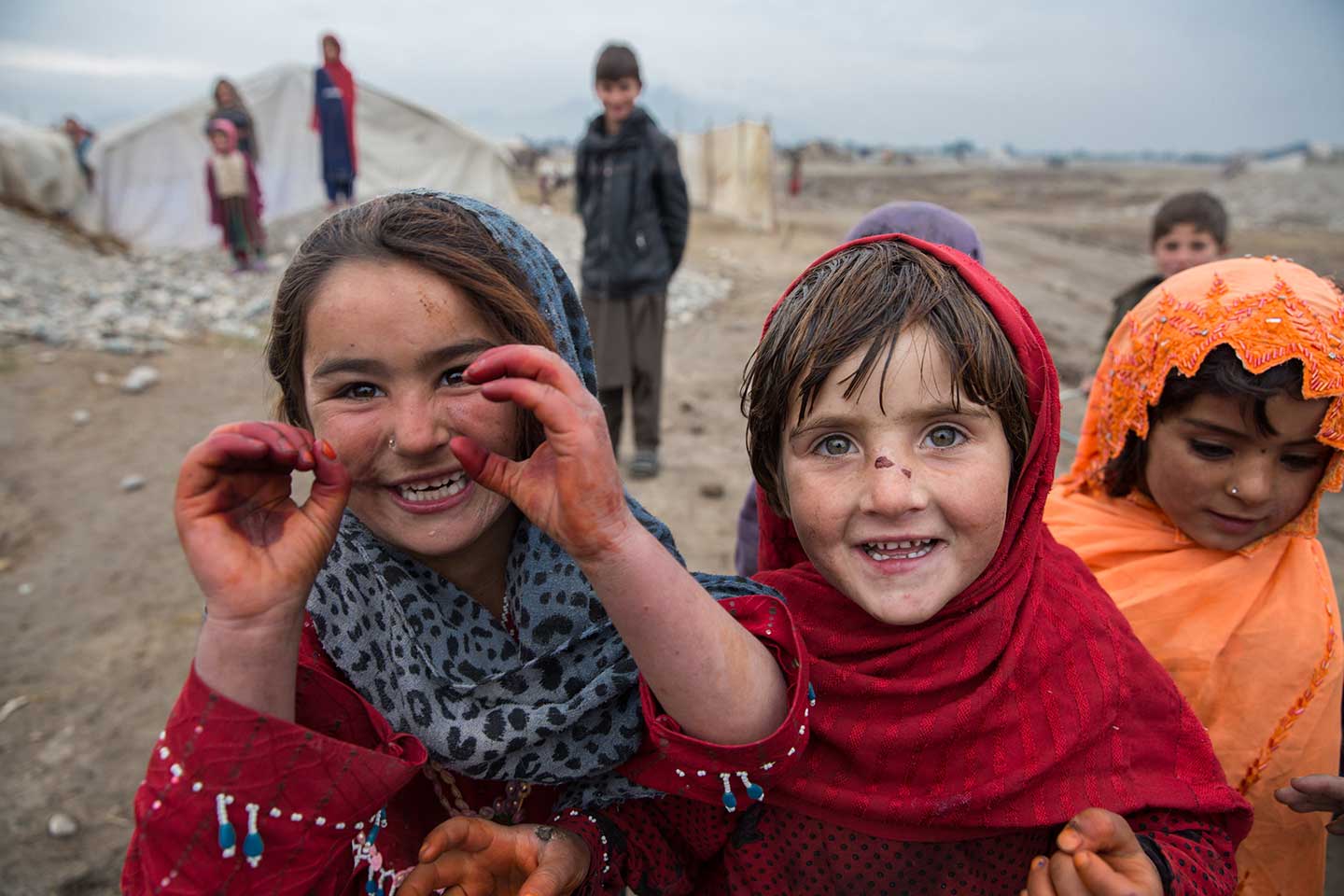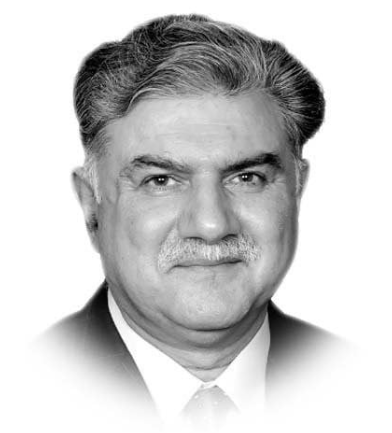
In the previous article, we debunked certain myths surrounding Afghanistan, and more pertinently the IEA. These include the impracticality of treating Afghanistan as a sovereign state and following a hand-off policy; Afghans’ ability to solve their problems unaided; Afghans not being amenable to pressure; IEA being a formidable foe; and Afghanistan providing ‘strategic depth’ to Pakistan. We continue the discourse.
Myth No 6. Pashtuns in Pakistan would want to reunite with parent state of Afghanistan, hence the bogey of greater Pashtunistan. This is an unrealistic figment of imagination by some non-Pashtun segments of the Pakistani Miltablishment, who cite this bogey to justify their appeasement of Kabul and other Pashtun nationalists, insensitive and unaware of the larger Pashtun sentiment. In 2001, as a Directing Staff in Staff College Quetta, a colleague (later Lt Gen) would heatedly argue for this fallacy of thinking. Pashtunistan issue is dead, and its raising, if any, by nationalists are feeble attempts by them to stay politically relevant, and to maximise political advantage in the Federation of Pakistan, just like small ethnic groups do elsewhere.
In the prevalent stable political construct, Pakistani Pashtuns look up to Islamabad, whereas Afghan Pashtuns throw their lot with Kabul. Yes, ethnic amity and common heritage would always work to foster positive bilateralism and neighbourly coherence, hence that must be fostered.
Myth No 7. Hostile Afghanistan presents Pakistan with two-front war scenario, simultaneously with India and Afghanistan. This is again a notion of Pakistan’s strategic construct advocated by the Miltablishment…that is also too far-fetched. Besides being unrealistic, it also encourages appeasement of Kabul and/or overt and at times unnecessary involvement in Afghanistan’s segmentary politics. In both cases, the ensuing policy stands on borrowed legs.
Afghanistan, barring occasional border flare-ups (motivated mainly by easement rights, smuggling interests and other local dynamics), would never go whole-hog against Muslim Pakistan. Kabul clearly knows the comparative national power potential (NPP), Pakistani leverages and the futility of such exercise, more than ‘some’ movers and shakers in Islamabad. In all three Indo-Pakistan wars, Afghanistan despite friendlier ties with India, never ever postured to take military advantage of the situation. Pashtuns on either side ensure security against third parties…just see historic continuum.
This myth also generates grandiose strategic iterations, like the ‘necessity’ of Pakistan consequently seeking ‘strategic depth’ in Afghanistan…the notion deflated last week. Such uncalled-for overt patronisation hurts Afghan sensibilities and is better when avoided.
Myth No 8. If IEA wants, it can initiate effective (ejection) action against TTP. As mentioned repeatedly, IEA is incapable, more than it is unwilling to eject the TTP. Having understood the IEA predicament, Pakistan should continue to pursue religious diplomacy with Kabul, launch IBOs relentlessly (cis and trans-frontier), share intelligence and other support with Kabul, ratchet up diplomatic pressure and grant the TTP-issue a normal lifespan. Pakistan needs to do what it needs to do without making politically motivated absurd statements.
Myth No 9. Pakistan never had any coherent Afghan policy. I hear this argument in important discourses from knowledgeable figures, who ironically were involved in policy formulation. This is perhaps attracting attention by saying something ‘negative’…knowing well its absurdity. We partnered with the rest of the world in successfully rolling back the Soviet occupation of Afghanistan, next door; Pakistan helped Afghans win their independence from 50-nation occupation force led by the US, and wisely pursued a policy protecting its national interests…as far as its NPP could permit; Islamabad remains the indispensable and most relevant interlocutor for stabilisation of Afghanistan, and yet — sadly and ironically — we are said to have no coherent Afghan policy. Re-reading some recent history would correct the ridiculousness of such blatantly anti-Pakistan, and self-belittling iterations.
Our foreign office, military, political government and intelligentsia followed a first-rate Afghan policy to protect Pakistan’s core national interests as far as possible, under a given environment. Yes, policy implementation is not a clear-cut and clean affair, and has fallouts, that even powerful countries cannot escape…despite the alignment of policy objectives and direction. America’s meddlesome involvement in the Middle East would help detractors understand this truism. Policy improvement, review, fine-tuning and calibration to respond to emerging crises is a constant process that should continue.
And policy should remain institutionalised, and not personality driven.
Myth No 10. Pakistan has exhausted its leverages vis-à-vis Afghanistan. This was the observation of a respected Afghan watcher during a diplomatic function recently in Islamabad, shared by many. It is also an absurd fallacy. Other than historic, religious, ethno-linguistic, social, psychological, trade, economic, political and diplomatic leverages that Pakistan enjoys vis-à-vis Kabul as argued, Kabul’s only leverage against Pakistan is Pashtunistan, if TTP is considered as transient dictate of the environment. And the Pashtunistan issue is out of sync with ground realties and overtaken by changing times. Today even Afghans (inclusive) — having lived in the relative safety and prosperity of Pakistan — want to make Pakistan their permanent home, come what may!
Afghan refugees find it unthinkable to be uprooted again and thrust into the uncertainty of Afghanistan. Afghan grocery shopping is not possible without Pakistan’s border markets (hence the tension with fence). Female education, denied to Afghan diaspora inside their own country, is available to them in Pakistani schools, colleges and universities. Besides quality education, it affords them lifelong friendships. Healthcare at doorstep is available to Afghans already in Pakistan, and those re-entering for medical treatment, importantly at affordable costs, way cheaper than India, as some Afghans like to tout. Pakistani Embassy and consulates cannot handle the visa deluge. The list is long than the space can permit… dear drawing room intellectuals.
Myth No 11. Trade potential with Central Asia through Afghanistan is immense. One grew up with such noise about the ‘potential’ that hasn’t actualised despite Soviet Central Asia shedding the Soviet yoke in the 1990s. For over three decades this mantra has remained a mantra. The wealth flowing through pipelines, the gold and goods through container trucks, and the people and ideas on knowledge highway hasn’t happened. We need to re-assess the Central Asian potential realistically and Afghanistan’s role in it pragmatically under cold calculating commercial logic, and not under historic romanticism. We might be surprised.



















Comments (1)
tivimatepremiumsays:
July 18, 2024 at 7:18 amUsually I do not read article on blogs however I would like to say that this writeup very compelled me to take a look at and do it Your writing style has been amazed me Thank you very nice article